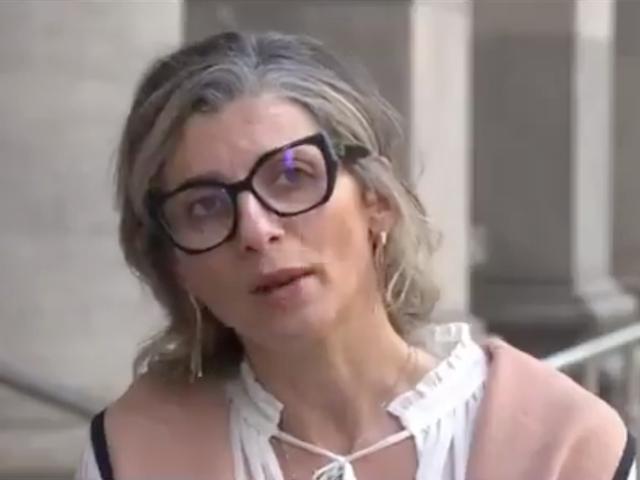Israel has taken a definitive stance against Francesca Albanese, the UN Special Rapporteur on the Palestinian territories, by denying her entry into the country. This decision, articulated by Israeli Foreign Minister Israel Katz and Interior Minister Moshe Arbel, underscores a broader message: the silence of Jews in the face of criticism is a thing of the past. The ministers demand a significant shift in the United Nations' approach, calling for the disavowal of what they describe as Albanese's antisemitic remarks and her immediate dismissal.
This development follows Albanese's controversial response to French President Emmanuel Macron's characterization of the October 7 massacre as the "largest antisemitic massacre of our century." Albanese argued on X (formerly Twitter) that the tragedy was not fueled by antisemitism but was a direct response to Israeli policies. This perspective, according to Katz and Arbel, blatantly ignores the explicit antisemitic rhetoric espoused by Hamas leaders, who have not only justified but encouraged violence against Jews globally.
Looks like @FranceskAlbs just found out 😂https://t.co/IOuYAFCeMW
— Fred Aaron is Pops Culture 🇺🇸✡🇮🇱 (@fredforthemets) February 12, 2024
Albanese's entry ban extends beyond Israel, affecting her ability to access Palestinian areas of Judea and Samaria, what she refers to as "the occupied West Bank". Despite this, she remains defiant, expressing on her X account a refusal to be intimidated by those she accuses of perpetuating the Nakba, the mass displacement of Palestinians in 1948, coinciding with the establishment of the State of Israel.
Albanese's remarks have stirred significant controversy, with the Israeli ministers accusing her of justifying the Hamas attack under the guise of anti-oppression rhetoric. While Albanese has made half-hearted condemnations of the attack, she maintains that labeling these actions as antisemitic obscures their underlying causes, viewing anti-Semitism as a separate, global menace.
⛔BANNED
— Jewish News Syndicate (@JNS_org) February 12, 2024
UN special rapporteur for the Palestinians, Francesca Albanese, has been refused a visa to enter Israel after comments that seemed to justify Hamas’s October 7 massacre.https://t.co/GxPeFnWfGX pic.twitter.com/b2mndKAlEQ
UN special rapporteurs, like Albanese, operate independently, contributing their findings to the Human Rights Council without officially representing the United Nations. Their role is crucial in highlighting human rights issues globally, though their statements can sometimes lead to significant diplomatic tensions.
Israel's previous criticisms of Albanese, particularly after her warning that Palestinians in Gaza faced a severe risk of genocide and her condemnation of funding suspensions for UNRWA (the UN agency for Palestinian refugees), illustrate the deep-rooted and complex challenges in addressing the Israeli-Palestinian conflict within international forums.
BREAKING: Israel's "denying me entry" is not news: Israel has denied entry to ALL Special Rapporteurs/oPt since 2008!
— Francesca Albanese, UN Special Rapporteur oPt (@FranceskAlbs) February 12, 2024
This must not become a distraction from Israel's atrocities in Gaza, which are taking a new level of horror with the bombing of people in 'safe areas' in #Rafah.
This incident highlights the fraught relationship between Israel and certain UN entities, underscoring the intricate balance between diplomatic discourse and the staunch defense of national sovereignty and security interests by states.


